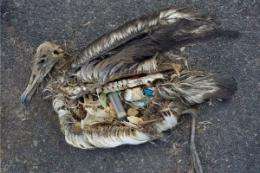Plastic bait strips now banned 'on sea' to protect marine life

New regulations on the possession of plastic bait straps will reduce waste and make the sea safer for marine life.
The regulations ban the “on sea” use of plastic bait straps on both commercial and recreational fishing vessels in Western Australian state waters.
The straps are used extensively by the fishing industry to secure bulk cardboard bait cartons together for transportation.
Department of Fisheries’ Senior Management Officer Graeme Baudins says the regulation removes the potential hazard the straps pose to the marine life by ensuring they are not present on any vessel.
“Sea lions, seals and sharks are particularly susceptible to injury or death through entanglement in uncut plastic straps.” He says.
Mr Baudin says the ban will also prevent the straps contributing to the marine litter that washes up on shores across the state.
When uncut straps enter the marine environment—by being washed or blown overboard from a vessel—and pose a risk of both injury or death to a range of species.
Entanglement can lead to the animal being easily killed by predators or death by strangulation. Another risk factor is the ingestion of plastic.
Turtles in particular are susceptible to plastic bags due to the animals mistaking them for prey and ingesting them eventually leading to their death.
The Australian Marine Conservation Society estimates that the litter found on beaches only represents about 15 per cent of the waste present in the ocean with 70 per cent settling on the sea bed and the remaining floating on the surface.
Mr Baudins says the regulation comes after long consultation between the Department of Fisheries and a number of other parties including WA Fishing Industry Council, Recfishwest and the Charter Boat Owners and Operators Association.
“Over the past two years, the Department of Fisheries has consulted with the commercial and recreational fishing sectors and developed appropriate measures to ensure greater protection for the marine environment,” he says.
The ban will carry a maximum penalty of $2000 and applies to all commercial and recreational fishing vessels in state waters.
“The move is another positive step in providing high environmental credentials in support of the states valuable commercial and recreational fisheries.” Baudin Says.
Provided by ScienceNetwork Western Australia
















